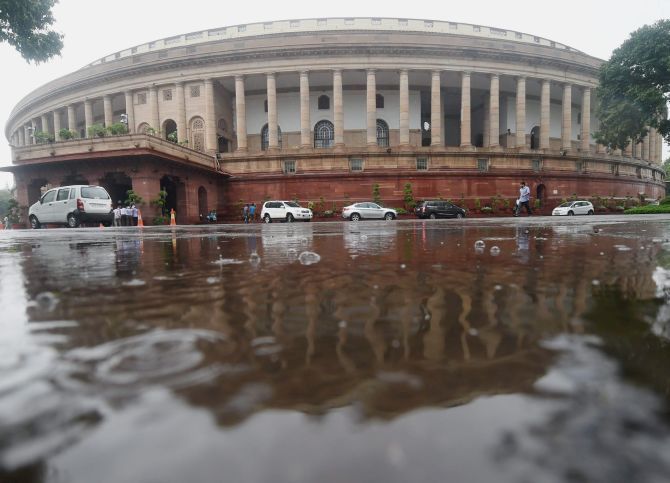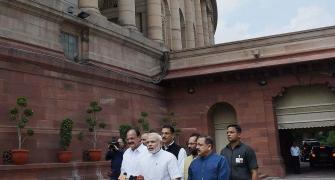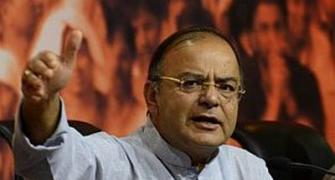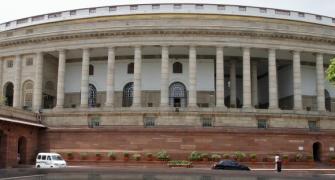Singling out the Congress as the only opponent to the GST, the government hopes to pass the bill after the altered numbers in the Upper House, reports Archis Mohan.

Parliamentary Affairs Minister Venkaiah Naidu on Wednesday said that the Cabinet Committee of Parliamentary Affairs chaired by Home Minister Rajnath Singh has recommended holding the monsoon session from July 18 to August 12. The session will see the government to make a renewed push for the passage of the goods and services tax Constitution amendment bill in the Rajya Sabha.
On Monday, Prime Minister Narendra Modi expressed hope that the "arithmetic" of the Rajya Sabha, after the recent biennial elections, could favour the passage of the GST bill. He singled out the Congress as the only opponent to the GST. He termed those against the key tax reform as "anti-poor".
According to the government arithmetic (see chart), the GST bill should get the requisite two-thirds majority after the altered numbers in the Upper House. The government has been emboldened by the Bharatiya Janata Party's recent electoral performance and losses the Congress suffered -- both in assembly polls as well as in the Rajya Sabha elections.

Modi also indicated that he was willing to go to Congress President Sonia Gandhi's house to convince her to support the GST bill. The Congress will take a final decision once its vice-president, Rahul Gandhi, returns from his overseas sojourn. But the party, as some in the Congress said, shouldn't be seen as the only obstacle when all other parties were likely to support the bill.
Significantly, Modi didn't place the J Jayalalithaa-led All India Anna Dravida Munnetra Kazhagam among the opponents of the bill -- suggesting a rapprochement on the issue. He named opposition chief ministers of Uttar Pradesh (Akhilesh Yadav), West Bengal (Mamata Banerjee, Bihar (Nitish Kumar) and Odisha (Naveen Patnaik) as supporters of the tax reform. Modi also said that it wasn't correct to categorise several of the non-BJP and non-National Democratic Alliance parties as "opposition" as these have supported the government legislation.











